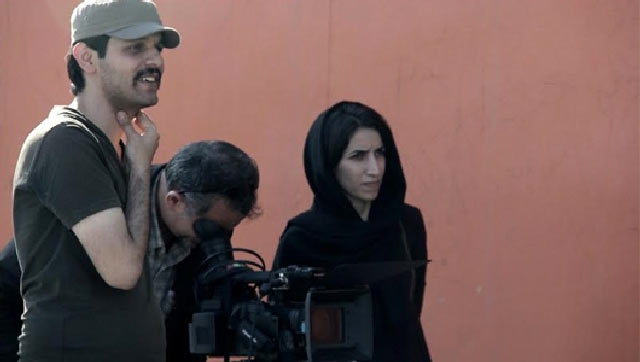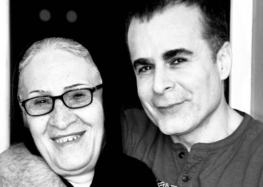Kurdish Filmmaker’s Appeal Request Accepted; Colleagues Voice Support
Documentary filmmaker Keyvan Karimi’s request for an appeal against a six-year prison sentence for “insulting the sacred” has been accepted, a source close to the case told the International Campaign for Human Rights in Iran.
Branch 54 of the Appeals Court, presided over by Judge Pour-Arab and Judge Babaei, will hear his case in January 2016.
On December 1, 2015, more than 130 Iranian documentary filmmakers signed a statement voicing their support for Karimi. They expressed hope that “this misunderstanding is cleared up and the young filmmaker is acquitted of the accusations against him.”
Karimi’s lawyer, Amir Raeesian, previously told the Campaign that the charge of “insulting the sacred” against his client is based on scenes in his documentary about the history of graffiti in Tehran, Neveshtan Rooy-e Shahr (Writing on the City).
“But this film has nothing to do with sacred matters. It is about graffiti writings in Tehran. They have not told us which scene in the film constitutes an insult to the sacred,” Raeesian added.
Some of the scenes in the film relate to the widespread public protests that followed the disputed 2009 presidential election in Iran, and this is likely what irked the authorities. Those protests are still an extremely sensitive topic in Iran, and referred to as “the Sedition” by authorities.
Karimi, 30, is a Sunni Muslim from Iranian Kurdistan. Karimi’s Kurdish and Sunni background may also have contributed to his harsh sentence. Iran’s Kurdish ethnic minority and Sunni Muslim religious minority are subjected to significant discrimination and persecution.
Judge Moghisseh of Branch 28 of the Revolutionary Court has sentenced him to six years in prison and 223 lashes for “insulting the sacred,” even though the maximum penalty for that charge is five years, Raeesian said.
In addition to Iranian filmmakers, several foreign colleagues at film festivals in France, Spain and Italy have condemned Karimi’s arrest. Two of Karimi’s documentaries, Marz-e Shekasteh (Broken Border) and Zendegi-e Zan va Shohar (The Life of a Husband and Wife) have won international awards.







